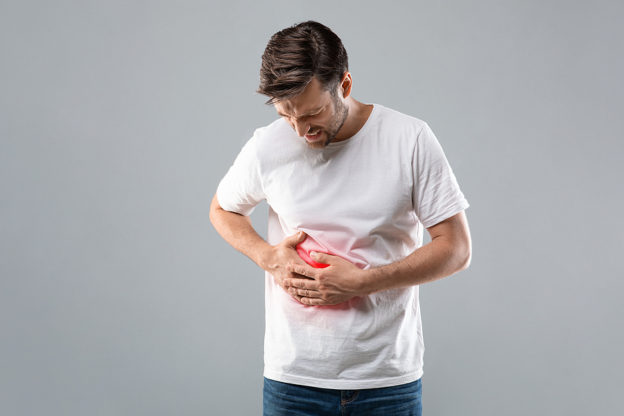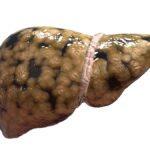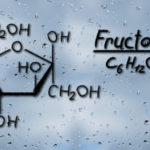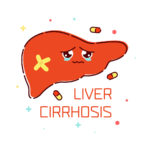By David Blyweiss, M.D., Advanced Natural Wellness
October 1, 2021
There was a time when you didn’t have to worry about your liver unless you were a heavy drinker or had hepatitis.
Over the years the landscape has changed. And it’s changed a lot!
Today, a common pain reliever is the most common cause of acute liver failure in the United States. You know it as Tylenol, or acetaminophen. It’s something patients reach for several times a day to relieve minor aches and pains.
It accounts for more than 50% of overdose-related acute liver failure and approximately 20% of liver transplant cases.
Now you would expect dire consequences if you took a giant dose of the stuff. Or if you were taking it with alcohol. But even if you take higher than recommended doses for several days, it can land you in the emergency room. And just a small amount of acetaminophen can damage the cells in your liver over time.
It doesn’t seem possible that a drug sold over the counter could have such a damaging side effect. Yet accidental overdose of acetaminophen has been a problem for decades. Since 1980 it is responsible for nearly half of all acute liver failure in the US.
MD Exposes the Hidden Danger to Your Eyes

When your eyesight starts to fail, it's a real problem. Suddenly you can't go to the grocery store... you can't get to the doctor if you have an emergency... you can't meet your friends for dinner…
Your "regular" doctor doesn't have time to keep up with the latest research. And the same goes for eye doctors. They go to school to learn how to fit you for glasses and contacts, but have no way of preventing the damage and loss of eyesight that threatens your freedom and independence.
Let me show you something that explains a LOT about how your eyes work.
In my FREE Special Report, I'll show you a HUGE, untapped resource for your eyes that safely and naturally restores clear, effortless eyesight.
Click here to get started...
And it’s not the only “safe” drug that can destroy your liver function. Certain NSAIDS, statins and antibiotics also come with their share of risk to the health of your liver.
This is Your Liver on Sugar
Another common liver enemy is fructose. Good old high fructose corn syrup. Today it’s believed to be the leading cause of non-alcoholic fatty liver disease (NAFLD). When you consume too much of it, fatty acids are created. The result is fat accumulation which leads to non-alcoholic fatty liver disease (NAFLD).
And you wouldn’t believe how much sugar we eat! The average person consumes almost 152 pounds of sugar each year. This averages out to about three pounds a week. (To put this in perspective, 200 years ago we were eating only about two pounds of it in the course of an entire year!)
You know to expect it in soft drinks, candies, baked goods and other packaged foods.
But you’ll find plenty of sugar in unexpected places, too. Healthy sounding beverages like fruit juices, vitamin water, sports drinks and bottled green tea are perfect examples. It’s even in a lot of those nutrition/protein/energy bars, whole grain breakfast cereals and granola products. Sauces and condiments also have surprisingly high sugar content.
With all of these added sugars in our food supply, it’s no wonder that about one out of two adults is affected by fatty liver disease. Or that NAFLD is the second most common cause of liver transplant.
How to Love Your Liver
The World's Quickest Solution for Ending Prostate and Urinary Misery
This has recently been revealed to be one of the only real breakthroughs in prostate health.
The seeds of a strange fruit (sometimes called "Chinese Apples") hold powerful phytonutrients that are a revolution in prostate health.
In fact, UCLA and Veterans Administration research have now proved this to be true.
Not only that, but it may be the worlds quickest solution for ending prostate misery.
Simply stated, these phytonutrients represent a huge step beyond beta sitosterol, saw palmetto, and other phytosterols alone.
Simply click HERE if you want to have fast prostate relief...restful, uninterrupted sleep...no more constant "urges to go"...enhanced virility...and optimal prostate support for life.
The best ways to ease pain without damaging your liver with acetaminophen or NSAIDs, and the best ways to avoid NAFLD, have a lot in common.
First of all, choose to eat an anti-inflammatory diet. That means cutting out foods that are sugary, salty, fried, processed and packaged. I also recommend avoiding foods that are inherently inflammatory like whole grains, dairy and omega-6 fatty acids. Commercial red meat and farm-raised fish also produce inflammation.
At the same time, you will want to add plenty of healthy, organic, plant-based foods to you diet.
Eating an anti-inflammatory diet helps reduce pain levels while, at the same time, protecting your liver from fatty build up.
Second, stay active. It decreases fatty acid synthesis and helps reduce liver damage. And in the long run, it will actually help reduce pain and increase your flexibility. Any type of movement, no matter how small, can help. Walk, swim or try water aerobics. Ride a bike. Sign up for yoga, tai chi or Pilates.
Third, reduce pain and inflammation with liver-friendly curcumin. Curcumin is a powerful anti-inflammatory that works as well as some NSAID pain relievers to conquer your aches and pains. Plus, it helps protect you from – and treats – liver disease.
Fourth, keep an eye on your alcohol intake. It takes much less alcohol than you think to damage to your liver.
Your liver has over 500 vital functions within the body. Without it you would die. I guess that’s why they call it the LIVER!
SOURCES:
Yoon E, Babar A, Choudhary M, Kutner M, Pyrsopoulos N. Acetaminophen-Induced Hepatotoxicity: a Comprehensive Update. J Clin Transl Hepatol. 2016;4(2):131-142.
Lee WM. Acetaminophen Toxicity: A History of Serendipity and Unintended Consequences [published correction appears in Clin Liver Dis (Hoboken). 2021 Feb 28;17(2):96]. Clin Liver Dis (Hoboken). 2020;16(Suppl 1):34-44.
DiNicolantonio JJ, Subramonian AM, O’Keefe JHAdded fructose as a principal driver of non-alcoholic fatty liver disease: a public health crisisOpen Heart 2017;4:e000631.
Clinton CM, O’Brien S, Law J, Renier CM, Wendt MR. Whole-foods, plant-based diet alleviates the symptoms of osteoarthritis. Arthritis. 2015;2015:708152.
Li HY, Gan RU, Shang A, et al. Plant-Based Foods and Their Bioactive Compounds on Fatty Liver Disease: Effects, Mechanisms, and Clinical Application. Oxidative Medicine and Cellular Longevity. 2021; 2021:6621644.
van der Windt DJ, Sud V, Zhang H, Tsung A, Huang H. The Effects of Physical Exercise on Fatty Liver Disease. Gene Expr. 2018;18(2):89-101.
Farzaei MH, Zobeiri M, Parvizi F, et al. Curcumin in Liver Diseases: A Systematic Review of the Cellular Mechanisms of Oxidative Stress and Clinical Perspective. Nutrients. 2018;10(7):855.
Shep, D., Khanwelkar, C., Gade, P. et al. Safety and efficacy of curcumin versus diclofenac in knee osteoarthritis: a randomized open-label parallel-arm study. Trials, 2019;20:214 (2019).
Eke-Okoro, UJ, Raffa, RB, Pergolizzi, JV, Breve, F, Taylor, R, For the NEMA Research Group. Curcumin in turmeric: Basic and clinical evidence for a potential role in analgesia. J Clin Pharm Ther. 2018; 43: 460– 466.







